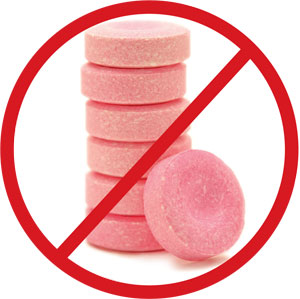
 |
|
|
What to do When you Can’t Stomach It

Digestive problems can occur for numerous reasons and many a book has been penned about them. These problems may occur from physiological changes, infections, inflammatory processes or more severe pathology. As usual, any problem that is new, severe, of rapid onset or accompanied by pain or blood in the stool should be checked out by your physician. Fortunately, most problems are of a functional nature. As we age, many things commonly happen to our digestive tract as our physiology changes. Things tend to slow down as our muscle mass and muscle tone decreases, so we need more roughage/fiber and water to compensate for these changes and keep things rolling along. Also, as we age, our stomach’s production of hydrochloric acid decreases as does our production of digestive enzymes by our pancreas. As a result we can develop symptoms of gas, bloating and indigestion as the good bacteria in our digestive tract are thrown out of balance by their changing environment. If we don’t digest our food well, it tends to putrefy and this will lead to a variety of systemic symptoms ranging from fatigue to achiness and headaches to say the least! To add fuel to the fire, as our production of hydrochloric acid and enzymes decreases, it makes us more susceptible to infections. Over time the accumulated assaults of innumerable tiny and sometimes not so tiny infections in the digestive tract can cause damage to what are referred to as the “tight junctions,” so that incompletely digested molecules of food are absorbed into our blood stream. This will then lead to the development of inflammatory reactions including food allergies and even some auto-immune problems, which will only make these symptoms worse. Food allergies are an all too common problem. The undigested food molecules are seen by our immune system as foreign and so an immune response is generated against them. The allergy pathway is different than for respiratory allergens and results in atypical antibodies being produced. If you have been traveling “off the map” then parasite infections become more likely. There are many single cell and tiny parasites out there – we’re not necessarily talking about spaghetti size creatures, although for our more adventurous readers, that may be a possibility too. So let’s get started in fixing these things. First, to address the slowing down issue – which allows food to putrefy and produce gas – eat more fiber, drink more fluids and exercise. As we exercise – fast walking, bicycling or swimming being among the best – it not only helps our muscle tone, bone density and svelte appearance, but it also stimulates our gut to move more regularly, hopefully at least twice per day. To compensate for our decreased production of hydrochloric acid, the natural supplement Betaine HCL right before meals can be very helpful. Betaine HCL is a dietary supplement that is used as a digestive aid. It is a delivery form of hydrochloric acid, the substance that creates the acid environment in the stomach. Betaine HCL is made up of betaine, a substance from beet sugar, bound to hydrochloric acid. By binding the HCL to betaine, the substance becomes stable and can be swallowed without damaging the esophagus. Once in the stomach, betaine HCL is cleaved (separated). The HCL creates a more acid environment, while the betaine moves on to be absorbed in the small intestine. The more accessible HCL helps with the breakdown of proteins into absorbable amino acids. Digestive enzymes are proteins that catalyze (i.e., increase the rates of) chemical reactions. They provide the means for the body to assimilate foods and to incorporate its nutrients into the many different bodily systems in which they are required. When a food needs to be broken down into its constituent parts so that it can be easily absorbed, it is the digestive enzymes which are responsible for this process. Taking a supplement like Similase BV after meals can support our decreased production of digestive enzymes. To minimize the effects of inflammation and infection, making sure that we have plenty of good microbes in our digestive tract is of vital importance. Lactobacillus Acidophilus is the most commonly referenced good digestive tract microorganism and is classified as a Probiotic. Probiotics are beneficial bacteria that positively alter the balance of intestinal microflora to improve digestion and decrease inflammation. These organisms account for up to ten percent of the entire bacterial population in the intestinal tract. Lactobacillus Acidophilus is also found within the inner linings of the mouth and vagina. Many recent studies point to the beneficial properties of Lactobacillus Acidophilus. These microorganisms have been shown to benefit digestion, immunological functioning, and to inhibit the growth of harmful bacteria in the body. In a large study in Europe it was clearly demonstrated that in sufficient quantities Acidophilus can displace a pathogenic bacteria called Clostridium difficile which is known to produce an immuno-suppressive toxin. By overgrowing its habitat and stealing its nutrients the Acidophilus can “push” the bad bacteria out of the digestive tract thus not only improving your digestion, but your general immune function as well.
|
||||||||||||||